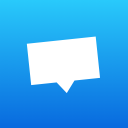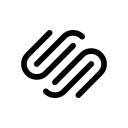How I Built A Productivity Taskbar App That Shows Your Day and Year Progress
Note: This business is no longer running. It was started in 2021 and ended in 2025. Reason for closure: Shut down.
Hello! Who are you and what business did you start?
Hello folks - I’m Apu, a startup founder and the creator of ProgressBar.
ProgressBar is a Windows taskbar app that shows your day and year progress, so you can make time for what matters. A picture tells a thousand words, so here it is:

It’s as simple as it looks - two icons that show your day and year progress with just a glance!
I built ProgressBar so that I could learn the skills needed to make my first $1 online. I was fortunate enough that on the day of its launch, not only did ProgressBar make sales beyond my wildest expectations, but it also won Product of the Day on ProductHunt, and was a finalist in Product...
Download the report and join our email newsletter packed with business ideas and money-making opportunities, backed by real-life case studies. Download the report and join our email newsletter packed with business ideas and money-making opportunities, backed by real-life case studies. Download the report and join our email newsletter packed with business ideas and money-making opportunities, backed by real-life case studies. Download the report and join our email newsletter packed with business ideas and money-making opportunities, backed by real-life case studies. Download the report and join our email newsletter packed with business ideas and money-making opportunities, backed by real-life case studies. Download the report and join our email newsletter packed with business ideas and money-making opportunities, backed by real-life case studies. Download the report and join our email newsletter packed with business ideas and money-making opportunities, backed by real-life case studies. Download the report and join our email newsletter packed with business ideas and money-making opportunities, backed by real-life case studies.

























